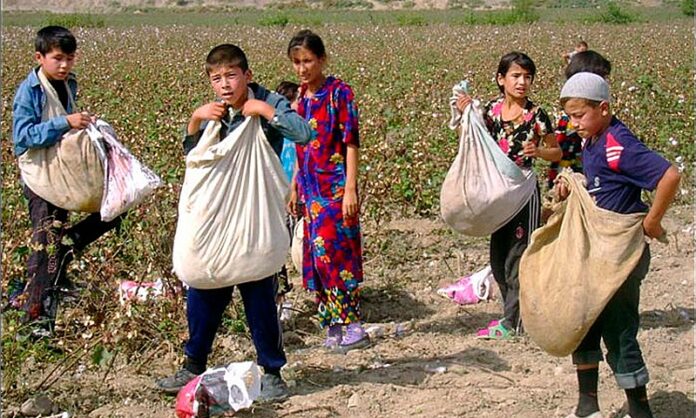By Dr Pravesh Gupta
President Mirziyoyev’s reform agenda after taking office in 2016 produced several
remarkable results. He emphasized Central Asia as a foreign policy focus along with
domestic reforms. As a result, Central Asia is experiencing a favourable regional
environment. On the domestic front, one of President Mirziyoyev’s significant
achievements was the banning of child labour, a rise in labour wages, and establishing of a
more equal agricultural economy in Uzbekistan.Widespread changes were initiated and
executed under his leadership, including the modernisation of the agricultural economic
model and the abolition of childlabour and forced labour, which were formerly frequent
during the annual cotton harvest.
President Mirziyoyev established cotton clusters in 2017 as a means for the state to
progressively relinquish control of cotton production. Cotton clusters comprised private
companies and investors that negotiated input and cotton pricing with farmers. Following
the regional success, the government nationalised the cotton cluster initiative in 2019.
Cotton clusters increased competitiveness in the agricultural industry and gave farmers
more control over their operations.
In 2020, the Uzbek government made another step toward ending forced and childlabour.
The government eliminated quotas and price controls. This step was significant as it
eliminated the economic motivation for forced and child labour. Furthermore, a new
legislation criminalising forced labour went into effect in 2020, and, the state strengthened
its investigation and enforcement efforts into law violations. Finally, the government
increased the minimum wage sixfold from 2016 to 2020.
The cumulative effect of these measures has significantly strengthened workers’ rights in Uzbekistan. Uzbekistan’s efforts to abolish forced and child labour are significant for the country’s labour rights. Workers freedom to exercise their rights is a critical step toward
decreasing rural poverty in Uzbekistan. Even though there is still more to be done to
advance equitable employment opportunities, the Uzbek government can be commended for making significant advancements. This significant achievement has been praised by civil
society organisations working on labour rights and child labour issues. This will also help
to develop Uzbekistan’s civil society, and these groups will be able to instill more
confidence in an accountable Uzbek government.
Dr. Pravesh Kumar Gupta is a Senior Research Associate at Vivekananda International  Foundation (VIF), New Delhi. He has a doctoral degree in Central Asian Studies from Jawaharlal Nehru University, New Delhi. His primary interests of research are society and politics of Central Asian Republics, geopolitics of Central and South Asia, Energy Security and trans-regional energy linkages between Central and South Asia.
Foundation (VIF), New Delhi. He has a doctoral degree in Central Asian Studies from Jawaharlal Nehru University, New Delhi. His primary interests of research are society and politics of Central Asian Republics, geopolitics of Central and South Asia, Energy Security and trans-regional energy linkages between Central and South Asia.






